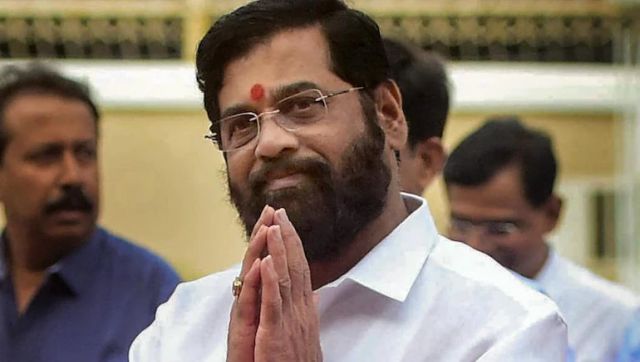The political tussle in Maharashtra between Shiv Sena and the rebel group led by Eknath Shinde has now reached the Supreme Court . The pleas filed by the breakaway camp challenge the disqualification proceedings against Shinde and 15 other rebel MLAs. On Monday, a separate plea was filed by Shinde in the top court regarding the safety of the legislators who have challenged party chief and Maharashtra chief minister Uddhav Thackeray. A bench of Justices Surya Kant and JB Pardiwala heard the pleas on Monday. What are Shinde and Co’s petitions before the SC? And what did the court say? We take a look. ‘Lives under threat’ On Monday, Eknath Shinde filed a fresh plea in the apex court claiming a “serious threat” to the life of Sena MLAs who are currently holed up at a five-star hotel in Guwahati. The petition also mentioned senior Sena leader Sanjay Raut’s “living corpses” remark, which he later clarified saying he was talking about the “dead conscience” of the legislators. “40 MLAs in Guwahati are living corpses, their souls are dead. Their bodies will be sent directly to the Assembly for post-mortem when they come back. They know what can happen in the fire that has been lit here,” Raut said while addressing party workers in Mumbai on Sunday. According to Shinde, he and his colleagues are receiving threats every day. The appointment of Ajay Choudhari The petition filed by Shinde has challenged the appointment of Choudhari as the Shiv Sena Legislature Party (SSLP) leader. On 21 June, Deputy Speaker Narahari Zirwal recognised Ajay Choudhary as leader of the SSLP and rejected Eknath Shinde’s claim to the post. The plea claims that Choudhary’s appointment was illegal, as it refers to the Maharashtra Legislative Assembly (Disqualification on Ground of Defection) Rules, 1986. According to Shinde, the appointment was made by a “minority faction” of MLAs and cannot be ratified by Zirwal, according to a report in The Indian Express. A plea against Zirwal Shinde has challenged the rejection of the no-confidence motion against Deputy Speaker Narahari Zirwal. He argues that Zirwal is an MLA from the Nationalist Congress Party (NCP), who is taking decisions as deputy speaker since the post of the speaker has been vacant since February 2021. According to the rebel camp, the NCP is backing the “minority faction” of the Shiv Sena – the small group that is still with Maharashtra chief minister Uddhav Thackeray – and hence Zirwal’s actions are “biased, based on mala fide and considerations totally against constitutional principles and to help his political party”. The rebels have sought directions to Zirwal to not take any action on the disqualification plea, which was filed by the Shiv Sena last week, until the matter of his removal is decided, reports NDTV. On the argument by the rebel camp that Zirwal cannot decide on the disqualification when a no-trust vote is pending against him, his counsel said that it was rejected since it was sent through an unverified email. In response, Justice Surya Kant asked, “If Deputy Speaker is saying that he is rejecting the motion that seeks his removal, the question is can the Deputy Speaker be the judge of his own court?” The disqualification notice Shinde has sought a stay on the disqualification notice, claiming that Zirwal cannot act on a petition against the 16 MLAs as a notice of resolution seeking his removal was pending. The petition referred to the Nabam Rebia case of 2016, in which the Supreme Court had ruled that a Speaker must refrain from adjudicating on the disqualification petitions if his position is challenged by a motion to remove the Speaker. Senior Advocate Abhishek Manu Singhvi, appearing for Shiv Sena led by CM Uddhav Thackeray, said in court on Monday that if the Nabam Rebia case was applied generically, it would be disastrous. His arguments hinged on the implication that until the issue was with the speaker the court ought to refrain from a decision, according to a report in News18. The period for disqualification Referring to Rule 7(3)(b) of the Maharashtra Legislative Assembly (Disqualification on grounds of Defection) Rules, 1986, Shinde’s plea said that the legislators who are disqualified are entitled to at least seven days to submit their reply to the notice. According to the petition, the June 25 notice gave the rebel MLAs only 48 hours. “Disqualification notice is classic example of Deputy Speaker acting hand in glove with Government in an attempt to hastily disqualify the Petitioner along with other supporters,” says the plea, according to a report in The Indian Express. On Monday, the Supreme Court extended the deadline given to the rebel MLAs to file their responses to the disqualification notices until July 11. Acting on Shinde’s petition, the top court issued notices to Zirwal, chief whip Sunil Prabhu, Anil Choudhari and the Centre. The matter will now be heard on 11 July. With inputs from agencies Read all the Latest News , Trending News , Cricket News , Bollywood News , India News and Entertainment News here. Follow us on Facebook , Twitter and Instagram .
Explained: Eknath Shinde’s pleas before the Supreme Court and what the judges said
FP Explainers
• June 27, 2022, 16:41:35 IST
Eknath Shinde challenged the disqualification notices sent to him and 15 other Shiv Sena MLAs before the top court. The breakaway group has now got until 11 July to respond
Advertisement
)
End of Article